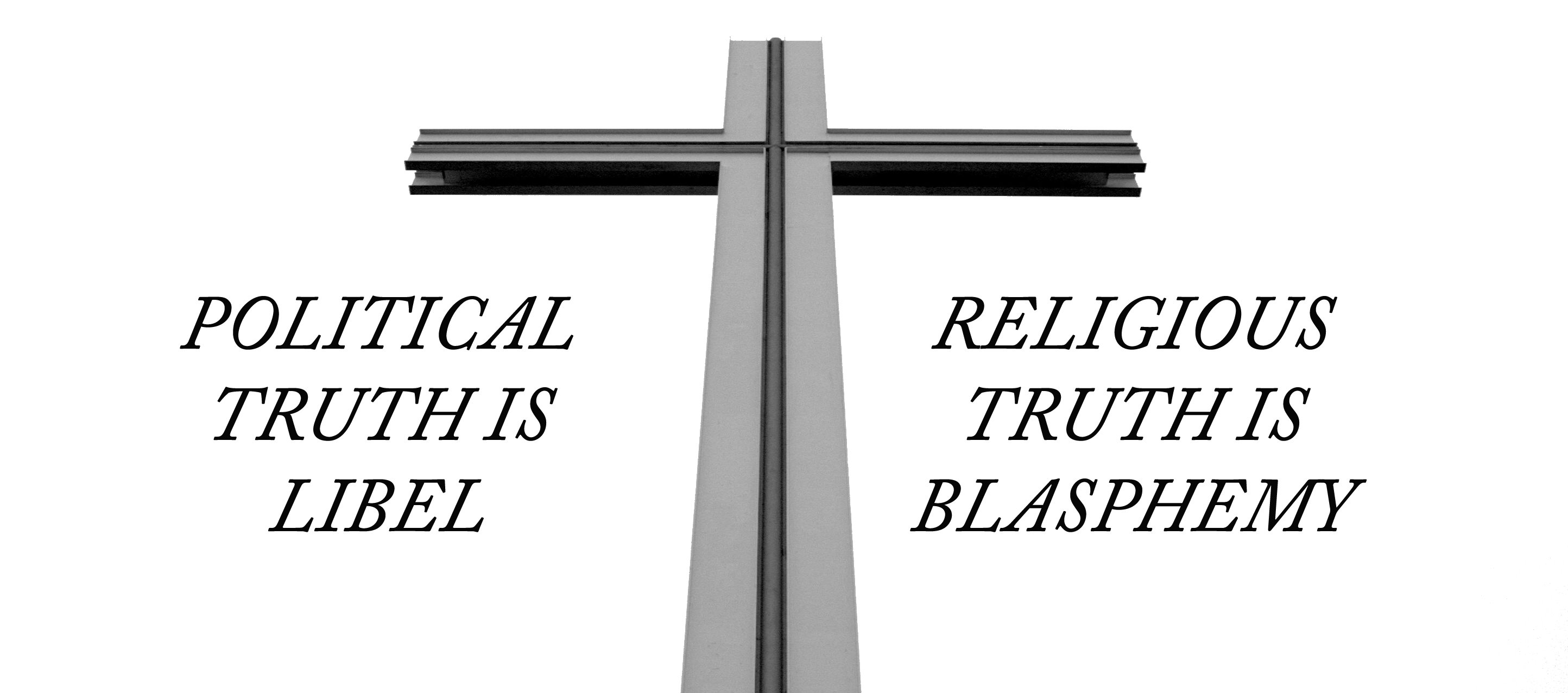
Blasphemy? No, it is not blasphemy. If God is as vast as that, he is above blasphemy; if He is as little as that, He is beneath it.
– Mark Twain
One man’s religion is another man’s blasphemy is a well-worn old adage but it’s a truism and the reason why blasphemy laws are necessarily contradictory and completely unenforceable.
A case in point is the prosecution brought last January in Belfast Magistrates’ Court against Pastor James McConnell, a Christian preacher in Antrim, for saying that “Islam is heathen. Islam is satanic.”
Delivering his reserved judgement in the case District Judge Liam McNally said: “The courts need to be very careful not to criminalise speech which, however contemptible, is no more than offensive. It is not the task of the criminal law to censor offensive utterances. Accordingly I find Pastor McConnell not guilty of both charges.” A wise call in that minefield called religion.
One of the main planks of religious doctrine is the claim that people of all other religions and no religion are damned (whatever that means). Hell, they even call each other blasphemous, and where is this more demonstrable than in Northern Ireland.
Christianity has about 40,000 sects, one damning the other and in turn most of them damning non-Christians. In return Islam condemns the infidel, which includes Christians and everyone who doesn’t acquiesce to Allah. To almost every religious group, all other gods but their own are idols or demons.
Most of this damning is done indirectly, like the Catholic approach that anyone who leaves them or even knows about them and doesn’t join up is damned, though their definitions of being damned has mellowed over the years as fewer people are prepared to believe those old hellfire and brimstone descriptions. Apparently sacred scriptures can be changed when it suits, or when the audiences figures demand it.
Blasphemy laws do nothing to help. While it may not be desirable in that people set out to deliberately offend others, it is legal. Those who advocate universal respect in matters of religion demand not just respect for their freedom to hold beliefs but that others must respect the beliefs themselves and allow practices that interfere with their own personal choices. This is clearly nonsense since most religious beliefs not only contradict each other but the differences are the very foundation of the dogmas.
These are basically internecine disputes between believers of various hues but they all seem to agree on one thing – that freedom of speech does not include freedom to criticise religious beliefs. Clearly this imposes respect for beliefs on everyone, regardless of their veracity.
Ireland inherited English common law against blasphemy and this was declared unconstitutional in 1999 but instead of taking steps to remove the constitutional requirement for a prohibition against blasphemy, in 2009 Fianna Fáil Minister Dermot Aherne created a new offence of “publication or utterance of blasphemous matter”, against any religion. The spin put on this retrograde step at the time was that it was an urgent legal necessity but the new law went a lot further than bridging a so-called gap – Aherne made it an offence to “publish or utter matter that is grossly abusive or insulting in relation to matters held sacred by any religion, thereby causing outrage among a substantial number of the adherents of that religion”. Clearly this is unworkable because offence is always defined by the offended and is open to any interpretation.
The removal of this nonsensical law and the repeal of the constitutional requirement that spawned it is long overdue. Ireland can’t claim to be a democracy of equals until that happens.
“I’m very depressed how in this country you can be told “that’s offensive” as though those two words constitute an argument.”
― Christopher Hitchens
-
Note: The 37th Amendment to the Irish Constitution removed blasphemy from the Irish constitution in October 2018. A year later, the repeal of blasphemy from the statutes has not happened!

